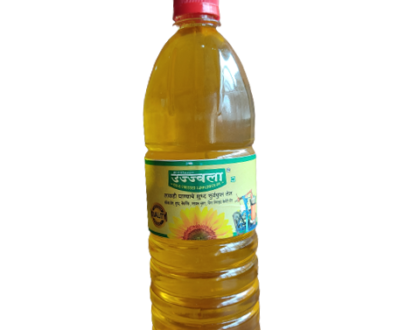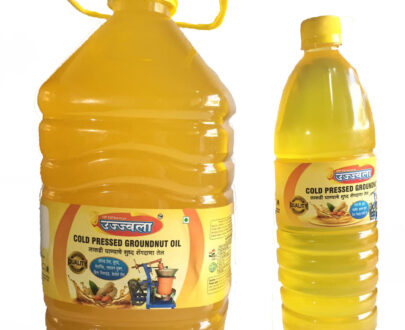- You have no items in your shopping cart
- Subtotal: ₹0.00
Ayurveda is a 5000-year-old medicinal practice that focuses on disease prevention and treatment. It is a blend of proper diet, lifestyle, and routine paired with natural remedies and detoxifying therapies to promote a healthy life.
The term “Ayurveda” comes from the Sanskrit language, which translates to “the science of life”. It is based on the philosophy of living in harmony with the surrounding environment.
Benefits of Ayurveda
It is holistic in nature that treats the body as a whole, and strengthen the connection between your mind, body and soul
It focuses on treating the root cause of a problem instead of providing short-term instant relief from a disease
It is a time-tested wisdom that helps you understand your body and its disorders and offers long-term relief from your health issues
It emphasises both prevention and cure
It is highly efficient against mild and chronic diseases
It is cost-effective, and some treatments can be found inside your kitchen
It is free from any side effects since the medicines and supplements are made of natural herbs rather than chemicals
Why are people returning to Ayurveda?
Ayurveda aims at maintaining a balance of doshas, the root cause of every ailment known to humankind. It helps in eradicates diseases from the source and offers permanent relief.
Ayurvedic supplements are widely used for disease prevention and control.
Ayurveda treatments are non-invasive and do not contain any synthetic compounds. This makes them a highly safer alternative to western medicines, often leading to side effects.
People prefer long-term relief
Ayurveda provides long-term relief from health issues, contrary to allopathy, which only focuses on providing instant relief and treatment. In several cases, people taking allopathy often take the medications for their whole life. Not only does this affect their quality of life, but it also put a dent in their expenses. Meanwhile, Ayurveda follows the principle of treating the root cause of an issue.
Ayurveda doesn’t create drug resistance
Allopathic medicines create drug resistance, where your body will stop responding to a specific drug after a while. As a result, you have to increase your dosage, which invites even more side effects, and your doctor may prescribe more medicines to counteract the side effects.
Ayurveda medicines are made from 100% natural herbs with no synthetic chemicals or harmful preservatives. It doesn’t put stress on your body’s metabolic activities or bodily functions. This is why you can take the exact dosage of ayurvedic medicines for years without any sign of dependence or resistance.
Nobody likes side-effects
Ayurvedic medicines comprise natural herbs, extracts (arks) and plants. The major advantage of Ayurveda over allopathy is that these herbs and plants have little to no side effects when used accordingly. Meanwhile, allopathic medicines are synthesised in labs and can cause side effects ranging from mild to severe.
It is non-invasive
Allopathic physicians often recommend patients undergo various invasive tests to diagnose the ailment. Ayurveda works differently; it determines your health by examining your Dosha levels, and providing accurate diagnostic reports without any invasive and expensive tests.
Doshas: Three Principles of Ayurveda
According to Ayurveda, the human body comprises three principle energies, known as Doshas. These energies are classified as Vata (air & ether), Pitta (fire & water) and Kapha (water & earth). Each individual is differently governed by a predominant Dosha. A deficiency or excessiveness of any of these Doshas can lead to several health issues. The goal of Ayurveda is to create harmony between all Doshas so that your body functions in tandem.
Vata Dosha
Vata is responsible for delivering essential fluids and nutrients to your body, such as maintaining blood flow and eliminating toxins and wastes from your system.
An imbalance of Vata can lead to poor blood circulation, muscle spasms, pain, aches, asthma, tightness in the chest, bloating, gas, constipation, and dehydration. Weight loss, restlessness, dizziness, and feeling low.
Pitta Dosha
Pitta facilitates better digestion and metabolism by converting food into energy and mobilising it throughout the body through Vata. Imbalance of Pitta can lead to skin rashes, acidity, heartburn, peptic ulcer, burning sensation in the GI tract, excessive heat in the body, inflammation in the joints, diarrhoea, constipation, nausea, irritation, bad breath, body odour, and excessive sweating.
Kapha Dosha
Kapha supports the overall structure of your body by acting as a glue to hold your cells together. A healthy kapha balance helps you gain proper weight, muscle improves bone density, and enhances reproductive tissues and marrow. Overall, it governs the weight, physical stamina and proper functioning of joints and lungs.
An imbalance of Kapha leads to weight gain, seasonal allergies, difficulty in losing weight, brain fog, lethargy, sticky bowel movements, feeling oversensitive, and stubbornness. Prolonged exposure to kapha imbalance can cause asthma, depression and diabetes.
Benefits of cold pressed oil
The extraction process of oils makes all the difference in terms of quality, flavour and retention of nutrients. In this process, seeds or nuts are crushed under pressure using minimal heating methods. Since no excess heat or any chemical solvents are used, cold-pressed oils retain their original flavour, aroma, taste and nutritional value.
Organic Cold pressed Coconut Oil: It is packed with antioxidants and anti-inflammatory properties that help treat skin diseases, infections, weight loss, etc.
Organic Cold pressed Groundnut Oil: High in LDL and omega-6 and great for your heart.
Organic Cold pressed Sunflower Oil: High in Vitamin E and low in saturated fat, which promotes a healthy nervous system.
Organic Cold pressed Almond Oil: Rich in vitamins E and D and extremely helpful for dry skin, hair and muscles.
Organic Cold pressed Mustard Oil: Contains the highest quantity of monounsaturated and polyunsaturated oil, omega 6, with antiseptic, antifungal and anti-inflammatory properties.
Benefits of Ark
Arks are the concentrated form of a herb or a combination of herbs. It is produced by boiling the herbs, collecting the steam, and then liquefying it to make Ark. The end product is a purer and more potent form of herb packed with medicinal properties.
Common types of Ark:
Tulsi Ark: Contain immunity-boosting and anti-bacterial properties.
Triphala Ark: Helps in managing appetite, constipation, acidity, hair fall and vision problems.
Arjun Ark: Contains anti-hypertensive, and cardioprotective properties.
Pari Ark: Comes with anti-viral, anti-allergic and anti-inflammatory properties- great for knee pain, sciatica, fever, and more.
Sarpagandha Ark: Helps in lowering BP, alleviating insomnia, treating high-grade fever, stomach infections, etc.
Kanchar Ark: Effective against PCOD/PCOS conditions, thyroid, tonsils, and helpful for cancer patients.
Chandrama Ark: Helps in curing skin diseases






